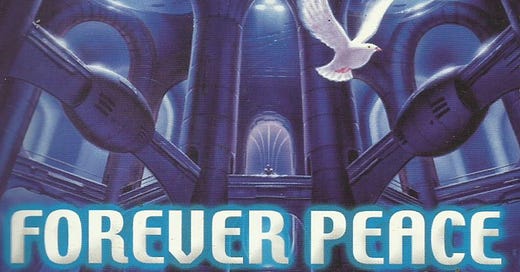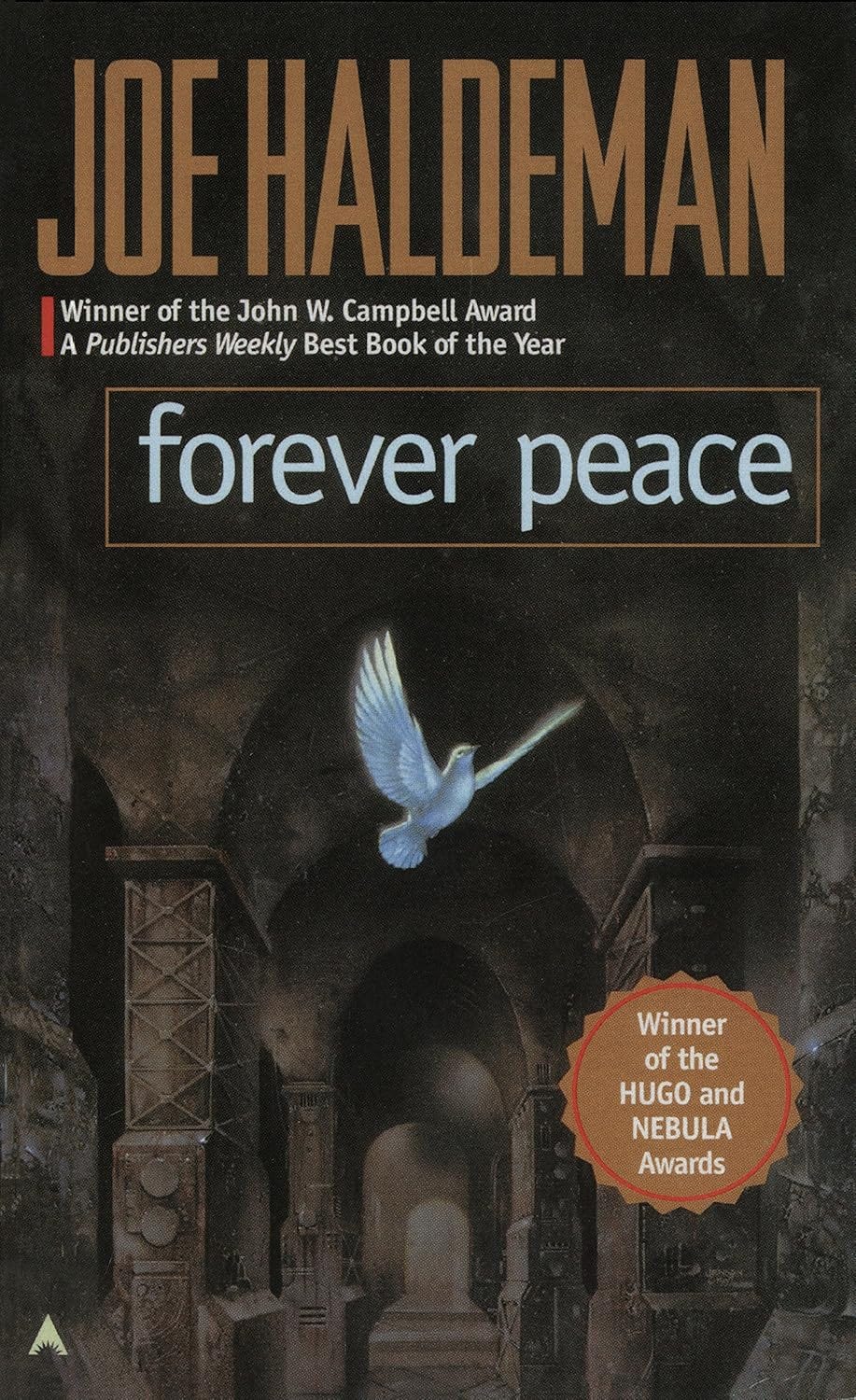This June marks the 82nd birthday of Joe Haldeman, a legendary voice in Military Science Fiction. While The Forever War remains his most iconic work, it's Forever Peace (a separate, stand-alone novel) that deserves a closer look for its bold ideas and unsettling relevance.
Set in the year 2043, Forever Peace presents a future shaped by technological warfare. The US-led Alliance dominates the globe using “soldierboys” - massive, remote-controlled combat robots operated by soldiers via neural interfaces. One such operator is Julian Class, a physicist by trade and a soldierboy mechanic by necessity. When these operators jack into the feed, they experience a full mental merge with their team, and everything is shared (thoughts, emotions, trauma). This neural intimacy becomes a chilling counterpoint to the detachment of remote warfare. Operators are not hardened killers, but thinkers and pacifists doing the most violent work imaginable.
The psychological consequences are immense, and Haldeman doesn’t flinch in exploring the ethical and emotional fallout. The geopolitical setup pits the wealthy Alliance against the Ngumi, a scrappy coalition of underdeveloped nations. The Ngumi are outgunned, but their ideological resolve brings an unsettling tension to every confrontation. And just when the story seems grounded in gritty war realism, Haldeman takes a cosmic leap. Julian uncovers a physics experiment near Jupiter that might accidentally trigger a second Big Bang. So now the focus shifts from the future of warfare to the survival of the universe itself.
What makes this novel so compelling is its cerebral ambition. It raises provocative questions: Can war be engineered out of humanity? Could peace be enforced neurologically? Is empathy scalable through tech? These aren’t just sci-fi hypotheticals, they feel uncomfortably close to our drone-filled present. But while the ideas soar, the execution can feel uneven.
The narrative meanders, characters sometimes fall flat, and the pacing stumbles between heavy exposition and fragmented subplots. Julian, an African-American physicist grappling with PTSD and systemic inequality, is fascinating in theory, but his emotional arc isn’t always as gripping as the world he inhabits. Still, Forever Peace remains a standout example of speculative fiction that dares to challenge assumptions about war, peace, and humanity. It’s not a sequel to the amazing Forever War, but it’s a thematic cousin with its own unique, haunting vision; and it received as many awards as The Forever War.
If you're into MilSF that leans more brain than brawn, Haldeman's Forever Peace is absolutely worth your time.
You can read Forever Peace here.
Watch my full review here:







